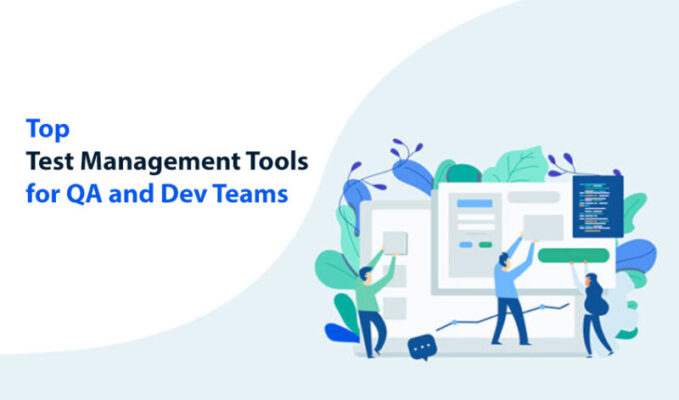
Top Test Management Tools for QA and Dev Teams
Last updated on April 7th, 2024 at 01:14 pm
In the current environment where software products need to be developed faster than ever, the testing processes also need to speed up due to time constraints. On the other hand, software quality is also important to sustain in the market. Therefore, test managers need to be more efficient in their testing efforts. The open-source test management tools have limited capabilities. Whether it is about capturing test requirements, designing test cases, test execution or informing the teams about testing progress, etc. a test management tool is important. Even a minute issue in recording these details can have catastrophic effects on the project. So to manage all the test case requirements, test management tools are important.
The following are the top test management tools for QA teams:
1. QACoverage:

QACoverage is a new agile test management solution with innovative vision and workflow to manage Software Test Life Cycles more effectively and efficiently. It boosts test productivity and provides visibility to better handle and control your established QA process via comprehensive Requirements Management, Test Design, Test Execution, Defects Management, Metrics & Reporting, and backlogs modules.
Key Features:
- Define, monitor, and control coverage of your test requirements
- Import and export use cases, business requirements, functional specifications and other project artifacts
- Add, modify, delete, duplicate, reorder and remove requirements
- Incorporate static testing review process with defects identification
- Simple and easy access to centralized, web-based test case repository
- Ability to monitor test design status and requirement coverage
- Establishment of traceability with requirements
- Establish complete traceability between requirements, test cases and defects
- Ability to upload test cases from Excel spreadsheets
- Ability to group test cases in different folder structures
- Ability to group and organize test cases by test type
2. Kualitee:
Kualitee is a top-notch test management tool that covers all your test management requirements efficiently. It allows you to make detailed test plans, write test scenarios, develop and create test cases and execute them. Kualitee offers an interactive interface with the ease of reusability of test cases to allow easy work management. It allows you to run multiple test cycles and configurable profiles to dedicate roles to teammates in the snap of a figure. It has APIs which streamline test case management.
Key Features:
- Efficient Test Case Management & Issue Tracking
- Test reports
- Kualitee Mobile App
- Third-Party Integrations
- Interactive Dashboard
- Supports both manual & automation testing
3. Zephyr:

Zephyr is one of the best test management tool, that provides solutions for all agile teams. With the help of Zephyr, a business can get the flexibility and insights to release better quality software. Its key features include:
Key Features:
- Integration with JIRA, Jenkins, Bamboo, etc.
- Cloud, Server and Data Center Deployment Options
- Advanced Analytics and Dashboard
- No annual commitments required
4. SpiraTest:
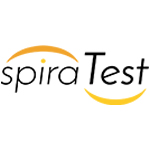
SpiraTest is a test management software that offers quality assurance solutions that managements all test requirements, bugs, and issues in the same environment. It provides complete traceability from inception to completion and its key features include:
Key Features:
- Test Case Management
- Automated Testing
- Exploratory Testing
- Bug Tracking Software
- Documentation and much more
SpiraTest also allows customizable solutions to make the most of the test management efforts.
5. TestRail:

TestRail provides test case management to help to organize test cases and getting real-time insights into testing processes. It allows the creation of powerful reports and metrics that increase productivity and deliver faster.
Key Features:
- Easy tracking status of individual test cases
- Measure progress – dashboard and analytics
- Track team workload
- Customizable and cloud-based solutions
6. qTest:
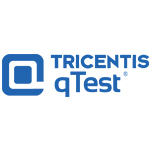
qTest is a test management tool that provides one of the best solutions for Agile and QA teams. It is easy to learn, and use, with scalable solutions that can be seamlessly integrated with JIRA, and other automation tools. It makes the QA process faster, simpler, and efficient than ever before.
Key Features:
- Test execution
- Defect tracking
- Reporting
- Integration
- Test case Repository
7. Test Collab:
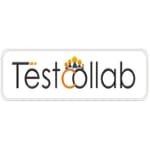
Test Collab is an easy-to-use test management tool that caters to all QA requirements. It offers state-of-the-art integration with all popular bug trackers and test automation tools.
Key Features:
- Time tracking
- Test plans
- Test scheduling
- Requirements management
8. TestFLO:
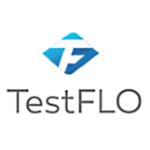
JIRA introduced an add-on called TestFLO that provides a comprehensive test management process into JIRA due to its reusable Repository of test cases by allowing test plan creation and copying. It supports a flexible configuration for Agile teams and projects, smooth integrations with defects and requirements by providing traceability metrics and reporting including all JIRA metrics and statistics. It can be integrated with Continuous Integration tools like Jenkins, Bamboo, etc. for automated tests. They also allow running tests from JIRA and publishing results in real-time.
Key Features:
- Traceability
- Test progress tracking
- Agile test management in JIRA
9. Practitest:
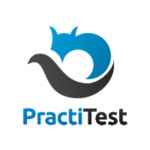
Practitest is an end-to-end test management tool that is a common ground for all QA stakeholders. It enables visibility into the testing process and provides a better understanding of the testing efforts.
Key Features:
- Various third-party integrations with bug trackers, automation tools and robust API
- Reuse tests for various releases and products
- Never work twice – with anti-bug duplicates, step parameters and call to test
- Dashboards and reports for data visualization
- Fully customizable and flexible
- Professional support
10. XQual:

XQual is a flexible and scalable application life-cycle management (ALM) solution that provides covers all test case management needs. Right from the beginning to the end, products, requirements, specifications, agile planning, tests, test campaigns, test reports, and defects. It delivers one of the most advanced test management solutions at affordable prices. It can be integrated with any other Continuous Integration tools. It also includes a bug tracking system.
11. Testpad:

Testpad is one of the most accessible and simple test management tools that use a pragmatic approach when managing tests. It uses checklist-inspired test plans, rather than managing cases one at a time, that can be formal or informal as per requirement, adapting to a wide range of styles including syntax-highlighted BDD, the manual side of Agile, exploratory testing, and even traditional TCM.
Key Features:
- Guest testers are invited by email and don’t need accounts
- Non-testers can easily use it; it gets everyone to help at the time of release
- Keyboard-driven editor with a JavaScript-powered (i.e. responsive) UI
- Drag ’n’ drop organization of test plans
- Allows you to add new tests as you think of new ideas during testing
- Lightweight integration with issue trackers, including JIRA
12. Klaros:
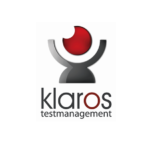
Klaros is one of the best test management tools made in Germany that is relied on by test teams all around the globe to manage their testing activities. It covers all areas of the test process: test creation, assignment, and tracking of test tasks, test planning, test execution, and report creation. Klaros integrates with tools for continuous integration, performance/load testing, defect and requirements management, and test automation.
Key Features:
- Free Community Edition and extended Enterprise Edition
- Server or hosted cloud
- Integration with JIRA, Redmine, GitLab, GitHub, Jenkins, QF-Test, Selenium, JUnit, JMeter, and more
- Reusable and modular test case design
- Powerful reporting interface
13. TestLodge:

TestLodge specializes in four basic aspects: requirements, test runs, test plans, and test suites & cases. It makes the test case management process simpler while enabling a quick generation of test plans with ease. It allows integrations with your existing bug management tools to allow ticket and defect reports to be automatically created when a test case fails.
Key Features:
- Manage & Track Execution
- Centralize & Organize
- Testing Support
- Integration
14. TestLink
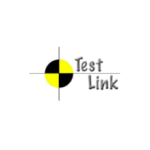
TestLink is a web-based and open-source test management tool that includes reporting, planning, test specification, and requirement tracking. It enables progress tracking through effective reporting and charts while also incorporating additional features such as events log, specifying requirements, and assigning keywords.
Key Features:
- Charts Support
- Metrics Support
- Test creation and execution
- User-friendly UI
- Defect Recording
15. Testuff
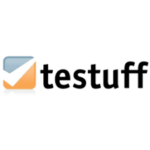
Testuff is a top-of-the-line test management tool that has one major selling point: limitlessness. That means unlimited testers, tests, defects, and projects can be managed and reported. Security is right up there on its priority list. With a highly secured and fully backed up environment, tests can be organized by hierarchical suites, branches, and projects. It also allows export and import data from an excel sheet.
Key Features:
- Integration with any number of bug trackers
- Communicate with team using Twitter integration
- Attach a video to defect reports
- Assign test to specific testers
- Shared steps
- Test Cycle planning using multiple labs
16. QAComplete

QAComplete takes test management to a new level with improved control and enhanced visibility of the testing processes. It supports both manual and automated testing while placing a major focus on aspects such as test management, bug management, requirement planning, etc. It’s a great option for agile teams, allowing them to prepare customized reports.
Key Features:
- Automation Integration
- Requirements Traceability
- 3rd Party Tool Integration
- Powerful Dashboards and Reporting
17. TestMonitor

TestMonitor is one of the most popular test management tools known for its simple, intuitive approach to testing. Whether you need QA, you’re implementing enterprise software, building a quality application or just need a helping hand in your test project, TestMonitor can be your best option.
Key Features:
- Requirement and risk-based testing.
- The capability of supporting thousands of cases through advanced test case design.
- Robust planning tools with milestone cloning and multi-tester run.
- Comprehensive result tracking.
- Integrated issue management.
- Smart reporting with various visualization and filter options.
- Revolutionary simple UI.
- Third-party integrations featuring Jira, DevOps, and Slack. REST API included.
- Professional support with the quick response time.
18. Qase

Qase is a cloud-based test management system for both testers and developers. Be it, individuals or teams, Qase helps both to significantly boost testing productivity and allows them to manage test cases, compose test plans and efficiently perform test runs.
Key Features:
- Supported integrations
- Team Management
- Cases & Suites
- Defect Management
- Test Runs
19. TestCaseLab
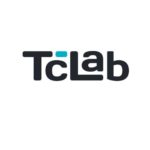
TCL’s user experience is considered to be one of the best among test management tools. With incredible design and straightforward user flow, it allows the users to utilize their time on important things instead of getting lost trying in the software trying to understand how it works. TCL offers a variety of features for QA professionals.
Key Features:
- Wide variety of test case properties
- Test Plans/Requirements
- Test Runs + assign users
- Advanced search
- Integration with: Jira, Redmine, Pivotal Tracker, Asana, YouTrack
- Export / Import
- Basic reporting/insights
- Activity stream, history log
- Real-time synchronization
20. ReQtest:
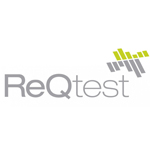
ReQtest is a cloud-based test management tool that supports testing teams with all testing challenges and managing test priorities. It offers integration to plan and execute tests easily. It also offers JIRA integration to improve the testing results.
Key Features:
- Integrated test suite – plan, execute and follow-up test cases
- Instant bug reporting
- Pre-filled and customized forms to improve test cases
- Dashboard for real-time insights to boost productivity
- Link requirements to test cases
- Reporting with built-in charts
With so many test management tools available in the market, it gets difficult to compare them in terms of their pricing factors. Although, almost all of the tools come with excellent features yet it becomes complex to number them. I hope this article gives an insight into the basics of the top most used test management tools. However, it is always advisable to take a wise decision when selecting a tool for your test management project.
Read Dive is a leading technology blog focusing on different domains like Blockchain, AI, Chatbot, Fintech, Health Tech, Software Development and Testing. For guest blogging, please feel free to contact at readdive@gmail.com.

